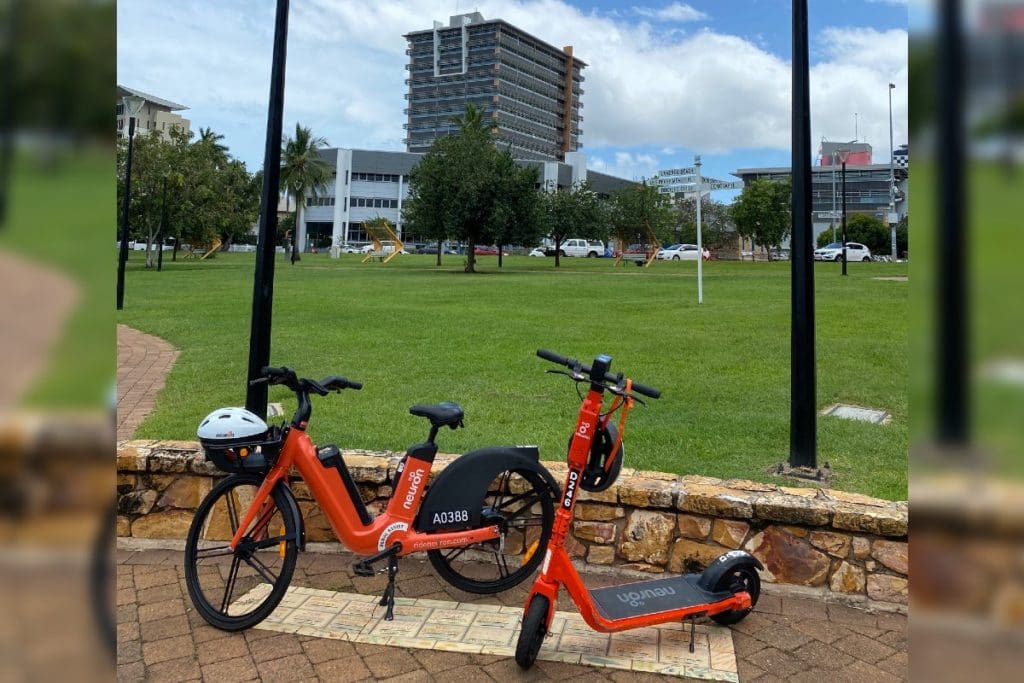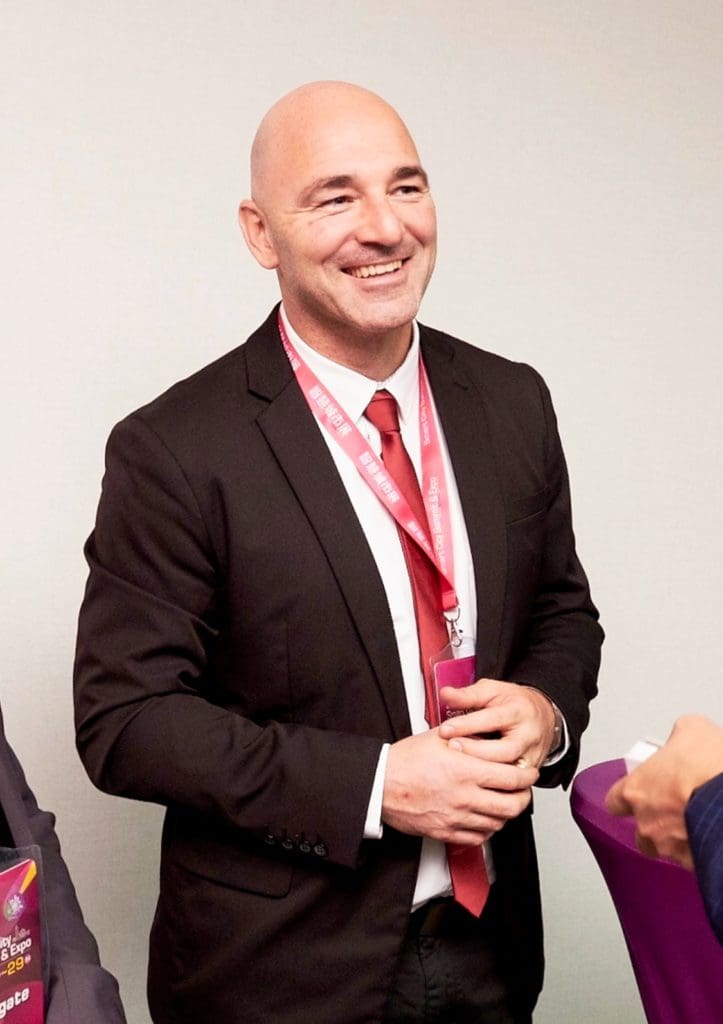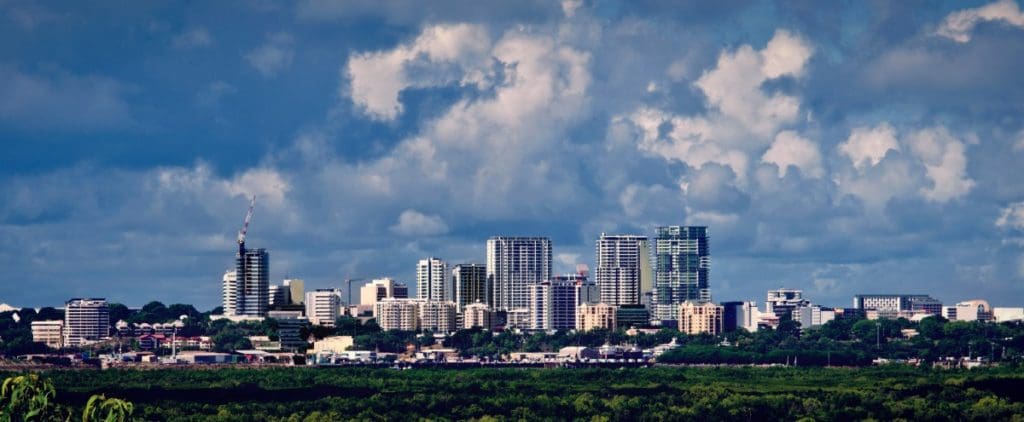Bike and Scooter Share is Booming in Darwin

Darwin, Northern Territory
Darwin is one of Australia’s most remote cities. Geographically it’s closer to Singapore than Sydney. It’s the capital city for the Northern Territory, which is Australia’s most sparsely populated state or territory with just 245,890 people living in a vast area of 1,420,970 square kilometres. Over half of these, around 147,255, live in the Darwin greater urban area. This is divided into three Local Government Areas (LGA’s) of which the City of Darwin has by far the largest population, including the city centre and closest suburbs.
Almost ironically, given the sparseness of the surrounding countryside, the city centre of Darwin itself is tightly constrained. That’s because it was built at the end of a peninsular, surrounded by the ocean on three sides. City land is densely developed. As one photo accompanying this article shows, there has been a lot of medium and high rise residential and commercial development within the city over recent years. Six of the tallest seven buildings, the tallest being 33 stories high, are residential apartments. Not to mention hotels to cater for the non-covid usual huge volume of tourist traffic.
Therefore, traffic congestion is a daily reality like much larger cities and city parking is at a premium.
So this microcosm is a perfect candidate for successful bike and scooter share systems to operate. But what’s the reality?
We recently spoke with Joshua Sattler, who is General Manager, Innovation Growth and Development Services at the City of Darwin. This is a senior role, one step removed from the Chief Executive Officer.
Joshua has been responsible for overseeing a trial of both e-scooter share and more recently, ebike share.
Joshua began with characteristic Territorian matter of factness. “Darwin, environmentally, is a bloody hot place!” he said. “Just walking around the streets is like running a marathon. You can walk 300 metres in this place and be sweating. It looks like you’ve just come out of the beach at Bondi.

“Traditionally people jump in the car to do a few hundred metres. ‘I want to park out the front of my shop and I don’t want anyone to be there (in ‘my’ parking space) when I want to be there myself!’
“They think they’ve got a right to be in front of where they want to be. But within the city of Darwin, it’s just not going to happen.
“So we’re trying to reduce congestion, to pull cars out of the city because cars don’t spend money, people do.”
With these aims in mind, the City of Darwin partnered with global bike and scooter share provider Neuron for what is officially a long term trial.
“The trial with e-scooters has been really successful,” Joshua reported. “Now we’re moving that into an electric bike model.
Stunningly High Ridership
“We started with 150 scooters back in January 2020,” he explained. “That’s now gone out to 350 scooters in the same trial area, which is predominantly just the CBD area. We have increased out to another phased area for scooters, but the intention is not to go too far.
“We’ll increase to about 500 scooters by June/July 2021, which is our dry season. We traditionally get a lot of tourism over those months.
“Bikes, we started with 150 and we’re looking expanding that to 300 then 500 by June 2021. The area is going right out to the airport, right across the foreshore.
“From pretty much the first month, with the scooters, we were looking at between 1,000 and 1,500 trips per day in the CBD. They were getting turned over eight to nine times (per day).
“Rebalancing wasn’t much of an issue. We’re seeing numbers increasing still. From what we can see, rider etiquette has been really good as well.”
Joshua said that when they first floated the idea of an e-scooter share scheme to their local business chamber there were concerns that people would throw the scooters through shop windows, plus various other of the usual concerns also voiced in other Australian cities such as discarded scooters blocking footpaths and so on. But their fears have been unfounded.
Meanwhile the City also increased parking fees, but perhaps partly related to Covid-19, they’ve seen a dip in their car parking revenue over the past 12 months.
“Looking at our CCTV analytics, we’ve seen a 30% reduction of cars within the CBD,” said Joshua. “That has seen reduced congestion in our city. We’re Darwin – we’re a regional city but we still get those congestion points at the peak times of day, so any impact there to reduce that is of benefit to the community.”

Meanwhile the Neuron ebike share trial started in late 2020 and was also an immediate success.
“From 150 bikes we were getting 600 uses per day and doubling that on the weekends and that’s almost doubled to where we are now,” Joshua reported.
“Where we’ve limited the area for scooters, the bikes pick up. Some of the long trips on the bikes are up over 15, 16 kilometres. That really links some of our suburbs.
“Well before we started this trial in January 2020, we set up a working group. We had the police, Department of Transport, St John’s Ambulance and a couple of the other local authorities,” he explained.
“Our approach was to do it softly to begin with, so that we didn’t cause too much disruption.
It’s under a trial exemption under the Act. So we haven’t gone out to a normal procurement process. This is just a trail to see if it works in public uptake.
“We’re into the second year. Once the legislation changes (to legalise e-scooters) which is in train with the federal government, we can then apply a procurement process and see who else we can get into the city to operate this service as well.
“We’ve just about finished a cost benefit analysis for the first 12 months and those numbers are looking really good as well. The (NT transport) Minister will have the report later this month and hopefully we can get the legislation changed and open it up and see these things going across the city a little bit more.”
“There’s been a few accidents. I think we had 60 reported in the first 12 months (from perhaps half a million or more total rides). There hasn’t been a huge issue when it comes to the health and safety of the operators.”
Just because these e-scooter and ebike share schemes are working so well in Darwin, does not mean that the city is any sort of cycling paradise.
“We have an extensive ride share network that sits outside the road network but not on road lanes,” Joshua revealed.
“We did trial it before my time, but the elected members squashed it pretty quickly.”
This local cautious approach has meant that initially the ebikes were not allowed to be ridden along some of Darwin’s key main roads.
Fortunately, there is a key, scenic shared path right along the extensive foreshore parkland that effectively links the Darwin CBD to at lease some of the suburbs.
Meanwhile, the cautious locals are realising that the bikes are not disruptive, and some of these previously closed roads are being opened up to cyclists.
“We were conscious that we didn’t want that overlap in our initial phase but we’re relatively confident that we can now open those up,” Joshua predicted. “Riding on the roads on our CBD is quite safe anyway.
“I’d love to see private users,” Joshua continued. “Having proper thoroughfares through our CBD just for mobility, bikes, specific lanes for people getting in and out of the city.
“The data we’ve got back from Neuron in their evaluation report has been fantastic. Upwards of 72% of every trip had had a retail spend at either the front or back end of the trip.
“Some of that data has been fantastic for us to work out the economic consumption as a result of that initiative. Then passing this on to businesses. What pathways are people using? What times of day? All this important data from the device (scooters) let us make data driven decisions based on the back of any economic stimulus. So it’s been a really good tool for us.
“Any time we’re getting cars off the road, and at the end of the day, that’s what we’re trying to achieve, is of benefit to the community.”
